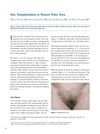 4 citations,
February 2008 in “Dermatologic Surgery”
4 citations,
February 2008 in “Dermatologic Surgery” Hair transplant surgery successfully restored a woman's pubic hair, improving her appearance and satisfaction.
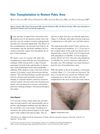 3 citations,
December 2007 in “Dermatologic Surgery”
3 citations,
December 2007 in “Dermatologic Surgery” Hair transplantation successfully restored a woman's pubic hair with natural-looking results and few complications.

A hair transplant using hair from the back of the head and pubic area was successful in creating a feminine hairline for a male-to-female transgender person.
2 citations,
December 2017 in “PubMed” A long-term pubic rash was finally diagnosed as white piedra and cured with ketoconazole.
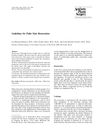 12 citations,
January 2006 in “Aesthetic Plastic Surgery”
12 citations,
January 2006 in “Aesthetic Plastic Surgery” Micrografts can effectively restore pubic hair, and using the right technique is crucial for natural-looking results.
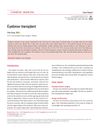 June 2020 in “Journal of cosmetic medicine”
June 2020 in “Journal of cosmetic medicine” Eyebrow transplants use hair from the scalp or pubic area, with blonde hair looking more natural, and can leave scars depending on the method used.
 157 citations,
April 1994 in “Clinical endocrinology”
157 citations,
April 1994 in “Clinical endocrinology” Androgens can cause hair growth in some areas and hair loss on the scalp.
37 citations,
May 1999 in “Annals of pharmacotherapy/The annals of pharmacotherapy” Some psychotropic medications can rarely cause hair loss, and stopping these drugs usually reverses the condition.
 January 2021 in “Anais do Congresso Brasileiro de Reumatologia 2020”
January 2021 in “Anais do Congresso Brasileiro de Reumatologia 2020” Tofacitinib improved arthritis and partially improved hair loss in a lupus patient without side effects.
 5 citations,
June 2016 in “Dermatologic Surgery”
5 citations,
June 2016 in “Dermatologic Surgery” Hair restoration for East Asians should consider their unique characteristics like head shape, hair thickness, and hair density, and use modified procedures and treatments to minimize scarring and maintain hair density.
5 citations,
November 1979 in “Archives of dermatology” Tretinoin cream successfully treated a woman's skin condition called Fox-Fordyce disease.
22 citations,
November 1979 in “Archives of dermatology” A woman with Fox-Fordyce disease had symptom relief using tretinoin cream.
66 citations,
October 2003 in “Dermatologic clinics” Excision and laser techniques can effectively treat acne keloidalis nuchae.
19 citations,
November 1979 in “Archives of dermatology” Tretinoin may be effective for treating Fox-Fordyce disease.
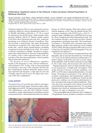 3 citations,
January 2020 in “Acta Dermato Venereologica”
3 citations,
January 2020 in “Acta Dermato Venereologica” Netherton Syndrome can cause severe skin lesions in rare cases.
 May 2014 in “Clinical and Experimental Dermatology”
May 2014 in “Clinical and Experimental Dermatology” A 70-year-old woman with a rare skin condition improved after treatment with topical steroids and acitretin.
Pseudofolliculitis causes painful bumps and dark spots from shaving, especially in people with curly hair, and can be treated by changing shaving habits and using specific topical treatments.
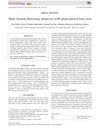 18 citations,
November 2012 in “Australasian Journal of Dermatology”
18 citations,
November 2012 in “Australasian Journal of Dermatology” A 66-year-old man with a rare case of male frontal fibrosing alopecia did not regrow hair despite treatment.
 8 citations,
January 2003 in “Pharmacotherapy: The Journal of Human Pharmacology and Drug Therapy”
8 citations,
January 2003 in “Pharmacotherapy: The Journal of Human Pharmacology and Drug Therapy” Chemotherapy may cause recurring hair loss due to an autoimmune response.
 January 2016 in “Journal of The Korean Medical Association”
January 2016 in “Journal of The Korean Medical Association” The document says how to diagnose and treat hair loss from alopecia areata, but there's no cure and treatments vary.
 January 2010 in “Springer eBooks”
January 2010 in “Springer eBooks” Pubic hair transplantation can help women with little to no pubic hair, using scalp hair for a natural look and requires careful aftercare.
 151 citations,
February 2007 in “International Journal of Dermatology”
151 citations,
February 2007 in “International Journal of Dermatology” Alopecia areata causes hair loss, has no cure, and various treatments exist.
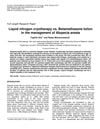 15 citations,
February 2013 in “Journal of Clinical Medicine and Research”
15 citations,
February 2013 in “Journal of Clinical Medicine and Research” Liquid nitrogen cryotherapy and betamethasone lotion are equally effective for treating alopecia areata.
 5 citations,
November 2006 in “Dermatologic Surgery”
5 citations,
November 2006 in “Dermatologic Surgery” Hair transplant surgery is a good cosmetic solution for people with little or no pubic hair, especially to boost their self-esteem.
 5 citations,
November 2006 in “Dermatologic Surgery”
5 citations,
November 2006 in “Dermatologic Surgery” Pubic hair transplant surgery is an effective and permanent treatment for pubic hair loss.
 34 citations,
October 2017 in “Archivos Argentinos De Pediatria”
34 citations,
October 2017 in “Archivos Argentinos De Pediatria” Alopecia Areata is a complex, unpredictable autoimmune hair loss condition with limited treatment options and a significant psychological impact.
 10 citations,
July 2017 in “Archives of Plastic Surgery”
10 citations,
July 2017 in “Archives of Plastic Surgery” Hair thickness decreases from the upper to lower areas of the back of the head, affecting hair transplant results.
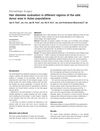 9 citations,
April 2017 in “International Journal of Dermatology”
9 citations,
April 2017 in “International Journal of Dermatology” Different areas of the scalp have varying hair thickness, useful for different types of hair transplant needs.
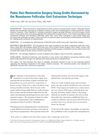 February 2018 in “Dermatologic Surgery”
February 2018 in “Dermatologic Surgery” Nonshaven follicular unit extraction is a highly satisfactory method for restoring pubic hair.

Current treatments for alopecia areata often fail to achieve and maintain significant hair regrowth.























